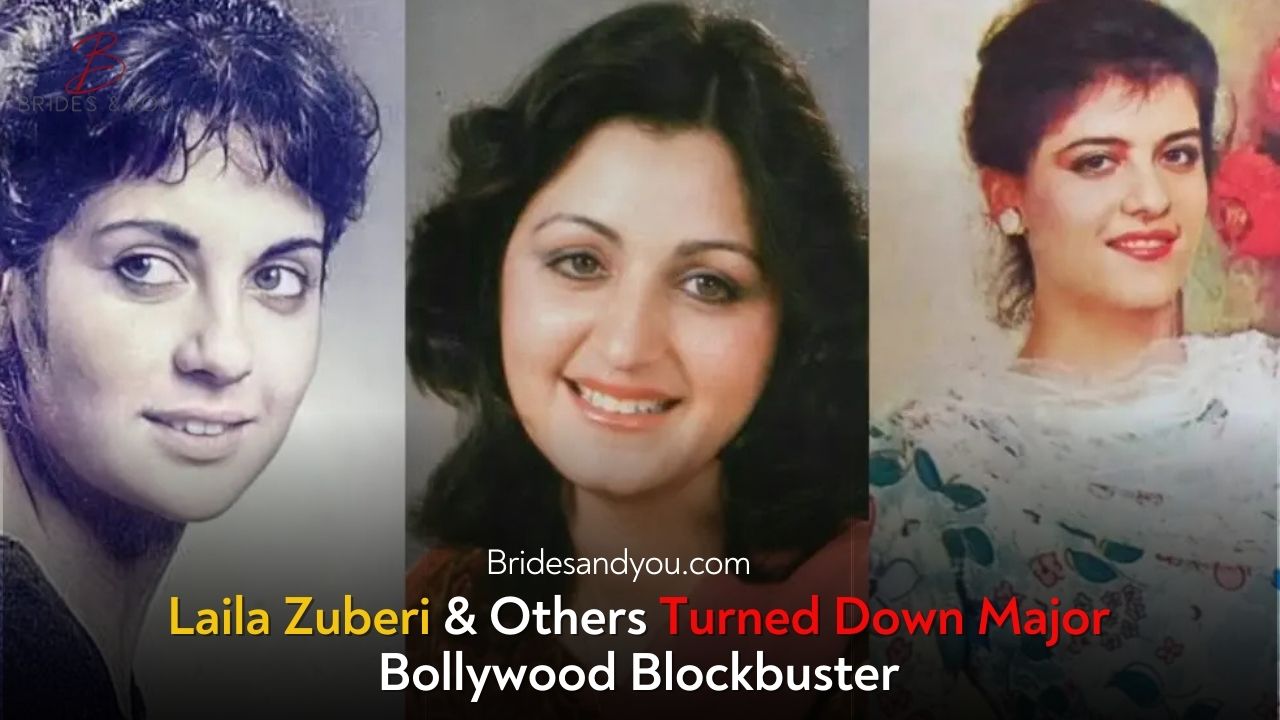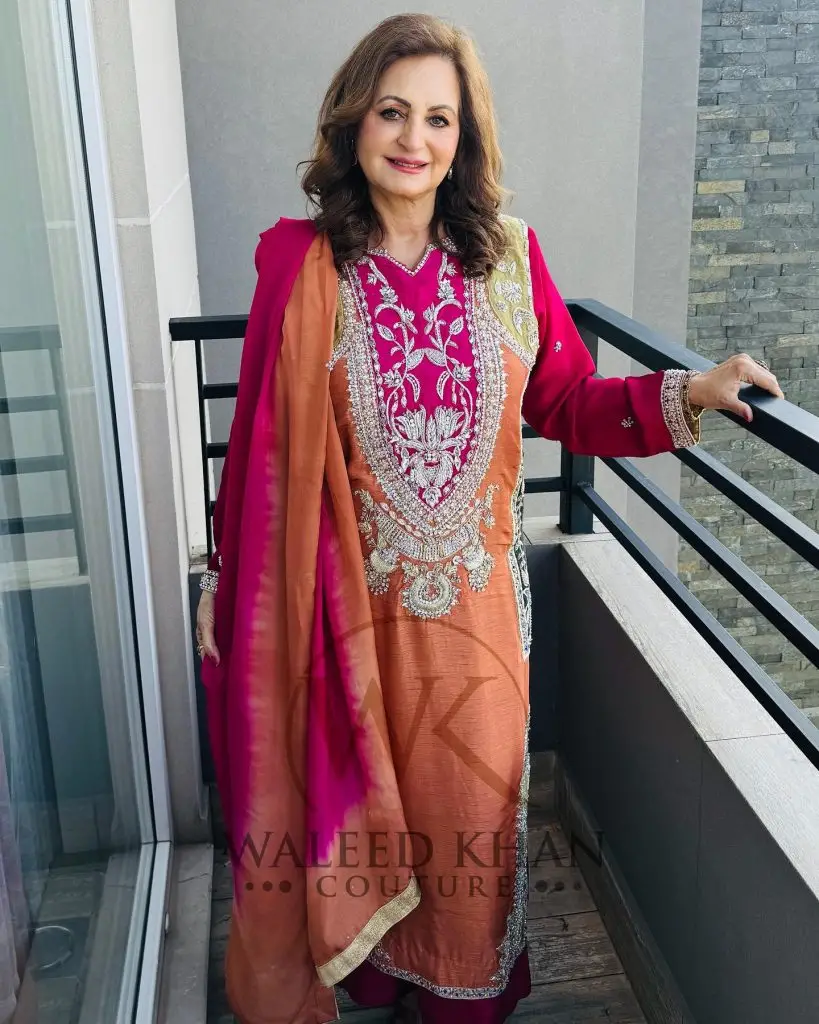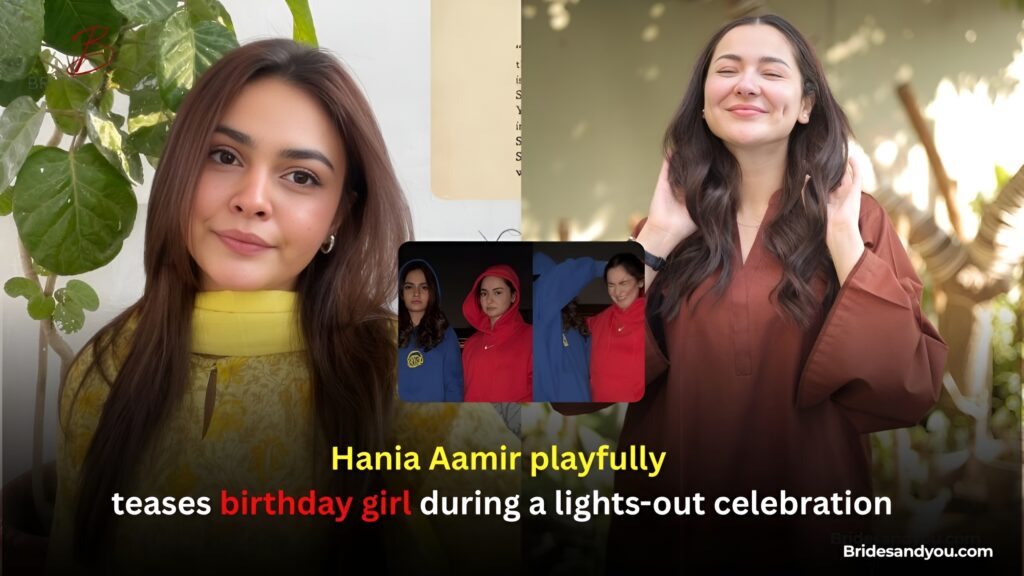Now Reading: Laila Zuberi and Other Pakistani Actresses Who Refused a Blockbuster Bollywood Film
-
01
Laila Zuberi and Other Pakistani Actresses Who Refused a Blockbuster Bollywood Film
Laila Zuberi and Other Pakistani Actresses Who Refused a Blockbuster Bollywood Film

Laila Zuberi, a name synonymous with talent and grace, has left an indelible mark on Pakistani television. With iconic performances in dramas like Kankar, Mann Mayal, Dureshehwar, Parizaad, Tan Man Neel o Neel, and more, Laila has become a beloved figure in the entertainment industry. Her roles have captivated audiences, and her acting prowess continues to be lauded. Recently, Laila’s stellar performance in the Hum TV drama Tan Man Neel o Neel once again proved her unparalleled skill, making her one of the most celebrated TV actresses in Pakistan.
However, there is an interesting chapter from her career that many may not know about—an opportunity to star in a Bollywood blockbuster that was later taken up by Zeba Bakhtiar. This revelation came during her appearance on the Pro Pakistani podcast, where she shared details about a once-in-a-lifetime offer she received from the Indian film industry. The film in question? Hina, a high-profile Bollywood production that captured the hearts of audiences in the 1990s.

A Missed Bollywood Opportunity
In the Pro Pakistani podcast, Laila Zuberi recalled the time she was approached for the film Hina. The offer came in the late ’80s, during a time when Pakistan and India had relatively good terms in the entertainment industry. It was in 1986 or 1987, at the Sharjah Cup, when Laila, along with other prominent Pakistani actresses, met legendary Bollywood actor and filmmaker Raj Kapoor. During this meeting, Raj Kapoor revealed that Pakistani dramas were being played in Pune Academy to teach acting to Indian students. Impressed by the talents from across the border, he extended an offer to Laila Zuberi for the lead role in Hina, a film that was ultimately made with Zeba Bakhtiar.
Laila Zuberi was not the only one approached for the role. Other renowned actresses, such as Shehnaz Sheikh and Marina Khan, were also offered the opportunity to star in the film. However, Laila, despite her interest in the project, had to turn down the offer due to personal commitments. She explained, “I couldn’t do that film because my husband was an officer in the Pakistan Army.” This revelation highlights the personal sacrifices Laila made during her career and how her dedication to her family played a pivotal role in her decision-making.

The Changing Landscape of Collaboration Between India and Pakistan
In her conversation, Laila Zuberi also touched upon the changing dynamics between Pakistan and India in the entertainment industry. Back in the ’80s and ’90s, the entertainment industry was more collaborative, with many Pakistani artists working in Indian films and vice versa. Laila reflected on this period, stating, “Previously, we had good terms with India, and we used to get a chance to work outside. Nowadays, there are rare chances for artists to work in India.”
This insight sheds light on the evolving nature of cross-border collaborations and how the political landscape has impacted artistic exchanges. The golden era of Indo-Pakistani collaboration in the entertainment world seems to have faded, with fewer opportunities available for artists to work in Bollywood today.
A Glimpse Into the Past: The Beautiful Faces of Laila Zuberi, Shehnaz Sheikh, and Marina Khan
To complement the podcast interview, Laila Zuberi shared some beautiful nostalgic photos from her youth, along with pictures of her fellow actresses Shehnaz Sheikh and Marina Khan. These iconic images capture the charm and elegance of the actresses during their prime, reminding fans of the golden days of Pakistani television and film. The bond between these actresses, who were once rivals and now long-time friends, is a testament to the camaraderie and mutual respect they share for each other.
The Impact of Laila Zuberi’s Legacy
Laila Zuberi’s career is a rich tapestry of performances that have shaped Pakistan’s television landscape. From her powerful portrayals of strong women to her graceful performances in a variety of roles, she has earned a special place in the hearts of her fans. While she may not have appeared in Hina, her contribution to Pakistani television has been just as significant, and she continues to inspire the next generation of actors with her professionalism and dedication.
Her refusal to work in Bollywood is not a regret but rather a choice she made for personal reasons. And as time passes, it becomes clear that Laila Zuberi’s true legacy is not defined by one film or one role but by her lasting impact on the Pakistani entertainment industry.
Conclusion
Laila Zuberi’s story of the Bollywood film offer is a fascinating chapter in her career that adds depth to her already impressive legacy. It serves as a reminder of the opportunities that could have been and the personal choices that shape an artist’s journey. As the entertainment industry continues to evolve, it’s important to reflect on these stories of missed chances and the shifting dynamics of cross-border collaborations.













